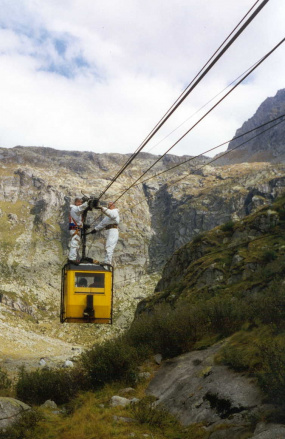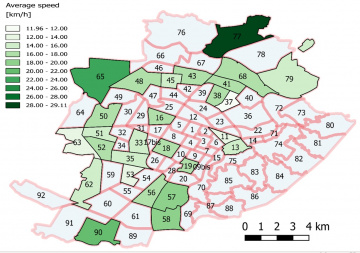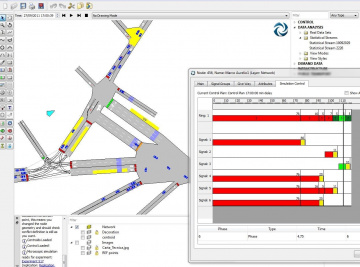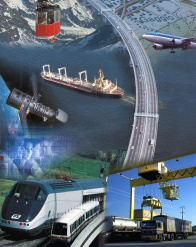TRANSPORT SYSTEMS
We face theoretical and applied research on Transport Systems, observing and modelling mobility and external logistics, as well as engineering and functionally designing transport infrastructures and installations, with related operation. Finding sustainable solutions for matching transport demand and supply is one of the main objectives of our research group. A multidisciplinary approach is pursued through consolidated relations with colleagues ad experts of various fields as automotive engineering, energy and electrical engineering, ICT, economists, urban planners and operation researchers, and also through the collaboration with Interdepartmental Centers of Politecnico di Torino, especially CARS@POLITO.
The main results of our research activities are disseminated both though scientific papers published in high ranking journals and through technical journals. We actively collaborate at the national level in initiatives proposed by Ministries, Local Authorities and private companies, and we are involved in European funded research projects such as eCo-FEV, METPEX, STARS, SUITS, TInnGO, INCIT-EV and GILL.
Our research covers the following key themes (the names of the main academicians working on each theme are pointed out in brackets):
Planning, operation and management of transport installations and systems (Dalla Chiara, Caballini): planning, analysis and performances of rail systems and undergrounds - including control, signalling and the operation of trains, tramways and subways – as well as of ropeways (even vertical ropeways) and people movers, together with the study of their co-modality and intermodal usage.
Methods and techniques for observing, characterising and modelling mobility and transport supply (Deflorio, Diana, Carboni): mobility, traffic and networks are modelled, also in simulation, for the quantitative evaluationof relevant impacts on the quality of traffic conditions, environment and safety.
Intelligent Transport Systems (ITS) (Dalla Chiara, Deflorio, Diana, Carboni): integration and application of ICT within transport systems and their components, with related signalling, control and assessments, also for road safety purposes.
Design and implementation of surveys in the transport field and analysis of mobility data (Diana, Deflorio, Carboni): statistical data analysis - including data mining, clustering and machine learning techniques - applied to the transport domain and passenger satisfaction; attitudinal surveys and simulation modelling to study the relationships between modal diversion and transport policy measures.
External logistics (Caballini, Dalla Chiara, Deflorio, Carboni): engineering, designing, operation, organisation, and performance evaluation, as well as energy and economic aspects relating to rail-road combined transport, intermodal terminals and port-maritime logistics. The main methods used are simulation, technologies testing and optimisation techniques.
Rope transport systems, cableways (Dalla Chiara): engineering, design and operation of ropeways as well as non-destructive control on ropes, both for ski-resort areas and for urban applications (cable-driven automated people movers for public transport).
Traffic simulation and control of road traffic networks (Deflorio, Carboni): simulation to represent roads, traffic and control systems characteristics allowing the testing of alternative scenarios and the planning of advanced traffic management strategies, even in the presence of cooperative, connected and automated mobility (CCAM) vehicles, that is, in situations of street network degradation due to external events.
Smart mobility and new services (Diana, Deflorio, Carboni, Dalla Chiara, Caballini): data analysis and modelling to investigate the introduction and the perception towards new urban mobility paradigms, such as plug-in electric vehicles, plug-in hybrid electric vehicles, sharing mobility, autonomous and advanced driver-assistance systems (ADAS) vehicles, integrative mobility solutions (Mobility as a Service, MaaS).
Sustainable transport systems and Climate Change (Dalla Chiara, Caballini, Deflorio, Diana, Carboni): planning, operation and technologies concerning energy consumption of transport modes, related to climate change: mitigation (less polluting transport) and adaptation (control of traffic flows in case of disruptions).
|
|
|
|




